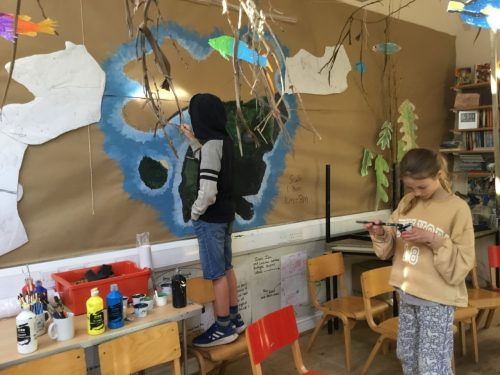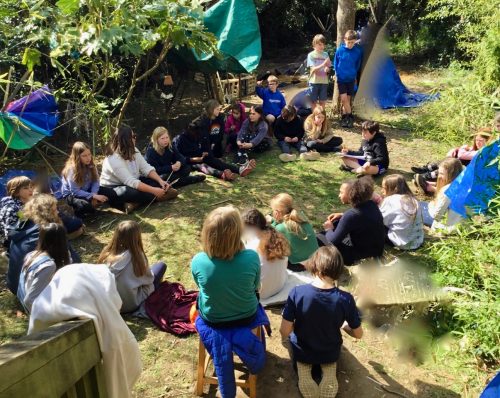The links below detail the progression of skills we cover in each subject, in each class.
However, it must be noted that these are the bare bones of what is experienced here at Bealings. Rather than being taught discrete subjects split into a weekly time table of separate lessons, most learning at Bealings comes from the fictional contexts co-created by the children and teachers and all subjects are intrinsically linked.
Children are not told, “This morning we have an hour of Geography and our learning objective is to read 6-figure grid references.”
Instead, as an experienced search and rescue team for example, we receive details of a missing group of naturalists on their way to the Galapagos Islands. All we have to go on is the last known six-figure co-ordinates of the boat they were travelling on.
This brings up so many more questions:
What location is this 6 figure grid reference?
How can we use a map to find this location accurately?
Will digital mapping help us?
How much area does it cover?
Are there any other grid references that would be more accurate?
What was the weather like at the time they went missing?
What is it like to sail on the Pacific Ocean?
Are we talking North Pacific or South Pacific?
How close to the equator is it?
How hot is it there?
Did they have enough food and water on board to survive this long?
Are there any other islands nearby?
Are they inhabited?
How can we communicate with the locals if the islands are inhabited?
If the islands are uninhabited, are there natural resources on these islands to all a group of humans to survive?
What is the weather like now?
What equipment do we need to search for them?
The questions go on…
Together the children navigate this problem, with the teacher as a subtly skilful companion.They have a reason to gain these skills prescribed. If the context is planned well enough – all of the learning in these progression grids, and more, will be experienced.
To read about the learning journeys being experienced by our children right now, click here.
Science and Humanities Overview:
To ensure full coverage of the national curriculum we have assigned different areas of the humanities and science curriculum to each class. As we have mixed age groups, there are two cycles for this.
Although themes are laid out according to class and term, the combinations and time of year in which they appear may be changed by the class teacher according to the bespoke context they are creating for and with their children that year.
Progression Maps (click on subject for details)
Art and Design, Computing, Design Technology, Geography, History, Modern Foreign Languages, Music, Physical Education, Religious Education, Personal Social Health and Economic Education/Relationships Education
